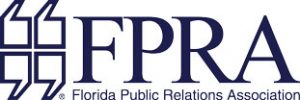As the world’s oldest public trade association in the United States, we emphasize the importance of fostering ethical communications and public relations practices. The FPRA Code of Ethics serves as the foundation for public relations profession and sets the standard of excellence.
Upon becoming a member of FPRA, members pledge to uphold these principles in their conduct and decisions to merit the trust of the public and stakeholders they serve.
Code of Ethics
As a member of the Florida Public Relations Association, I subscribe to the belief that inherent in the practice of public relations is the obligation of a public trust which requires adherence of these principles:
- A member shall conduct their professional life in accord with the public interest.
- A member shall exemplify high standards of honesty and integrity while carrying out dual obligations to a client or employer and to the democratic process.
- A member shall deal fairly with the public, with past or present clients or employers and with fellow practitioners, giving due respect to the ideal of free inquiry and to the opinions of others.
- A member shall adhere to the highest standards of accuracy and truth, avoiding extravagant claims for ideas and words borrowed from others.
- A member shall not knowingly disseminate false or misleading information and shall act promptly to correct erroneous communications for which they are responsible.
- A member shall not engage in any practice, which has the purpose of corrupting the integrity of channels of communication or the processes of government.
- A member shall be prepared to identify publicly the name of the client or employer on whose behalf any public communication is made.
- A member shall not use any individual or organization professing to serve or represent an announced cause, or professing to be independent or unbiased, but actually serving another or undisclosed interest.
- A member shall not guarantee the achievement of specified results beyond the member’s direct control.
- A member shall not represent conflicting or competing interests without the express consent of those concerned, given after a full disclosure of the facts.
- A member shall not place themselves in a position where their personal interest is or may be in conflict with an obligation to an employer or client, or others, without full disclosure of such interests to all involved.
- A member shall not accept fees, commissions, gifts or any other consideration from anyone except clients or employers for whom services are performed without their express consent, given after a full disclosure of the facts.
- A member shall scrupulously safeguard the confidences and privacy rights of present, former and prospective clients or employers.
- A member shall not intentionally damage the professional reputation or practice of another practitioner.
The FPRA membership approved this uniform code of ethics in 1987 as proposed by the North American Public Relations Council. It replaced the original code adopted in 1959.


